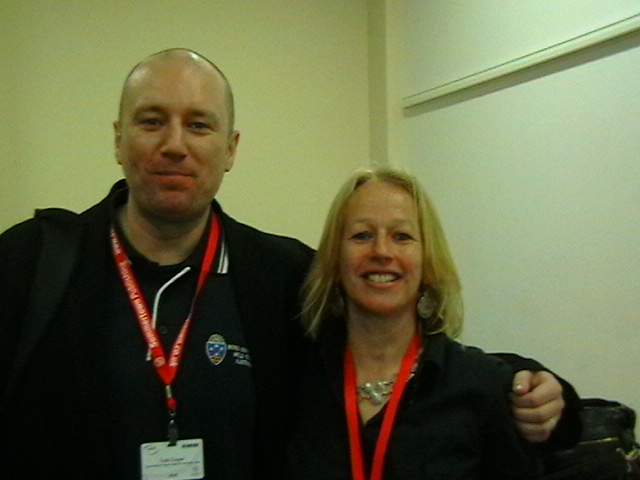I’m just back from the IATEFL conference in Exeter where, with Todd Cooper from Japan as co-presenter, we gave a paper with this title.

Before the conference Todd and I had never met in the flesh, only online, and the paper was entirely prepared within the Google platform. It was an amazing experience, made possible by Google tools. No wonder I want to share some of my ideas on googling.
Google is so much more than a simple search engine. Many EFL teachers are already dipping into its store of resources, to help bring learners together, connect schools, reduce software licensing costs, and manage user-generated content. From the outset, Google has been a successful yet accessible corner of the Web. I have always reveled in this important creation.
At the Google home page, click on the Sign up for new account link http://mail.google.com
User name, password etc. are asked for as usual. The customary questions are posed and you must sign the conditions. You use your current email address, where in the blink of an eye you will receive confirmation that you are accepted (all free!).
Now for starting to network documents and spreadsheets. You are ready to initiate a document or, alone or along with colleagues or learners, become a “collaborator” on it. The program works by lodging your files centrally – in fact on the Web, not on your computer. When you want to send something electronically, Google simply sticks an email address on it (like when your electronic newspaper asks you if you want it to copy something you’re reading to a friend.) Once your file has been uploaded to Google Docs, you can then recruit “collaborators” (by adding their email addresses – any one, not necessarily a Gmail account).
They will get that email and later see everything you modify. A huge benefit is at once obvious: multiple copies, changing frequently, are no longer generated. Drafting joint documents is easy and quick.
The process is safe; only you can decide who will “collaborate” i.e. be given access to your documents – which can be “read only”, if you choose. You can give sharers permission to go further, for example to call on other collaborators. You are now a powerful person, publishing documents on the web for all the world to see!
The program is easy to use, as the interface is similar to word-processing. It is flexible, spawning new ideas continually. Its chief advantage is that subsequent revisions come up at once on all the sharers’ sites.
Another specific feature of the Google Docs homepage is the Google Spreadsheets. These are a way of sharing XLS files in a closed or open group of learners. Once created, a spreadsheet can be inserted on a website, blog or wiki and used for a range of activities.
Join our group Exeter 2008 group:
http://groups.google.com/group/exeter-2008
We will be happy to discuss any issues and follow on any comments or ideas after the talk.



